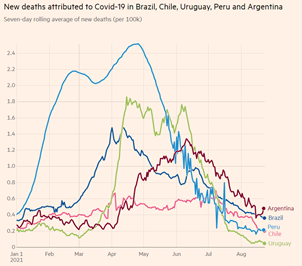ICYMI: @KFF released the results of a new poll a few days ago, covering a number of #COVID19 topics.
I'll highlight a few of the findings in a thread.
kff.org/coronavirus-co…
I'll highlight a few of the findings in a thread.
kff.org/coronavirus-co…
Among all registered voters the economy ranks as the most important voting issue, the coronavirus pandemic next. However, there is a stark difference by party, with 36% of Dems saying coronavirus is most important and just 4% of Republicans saying that. 

If a Covid-19 vaccine became available before the election, just 4 in 10 said they would choose to get vaccinated (with Republicans slightly more likely to say no than Democrats). 

Underlying this is a mistrust of the process of development and fear that political pressure is influencing the science. 6 in 10 adults say they are worried about political pressure on the FDA. 

An equal number of Americans now say "the worst is behind us" as say "the worst is yet to come" for the coronavirus outbreak. It used to be that more felt that the worst was still to come. More Americans are feeling like they've weathered the worst. 

Since April, Americans' trust in the CDC and in Dr. Anthony Fauci have dropped significantly. This has been driven by lower trust across the board, but in particular by declines in Republicans' trust - in April 90% of Republicans said they trusted CDC and that's down to 60% now 

• • •
Missing some Tweet in this thread? You can try to
force a refresh












